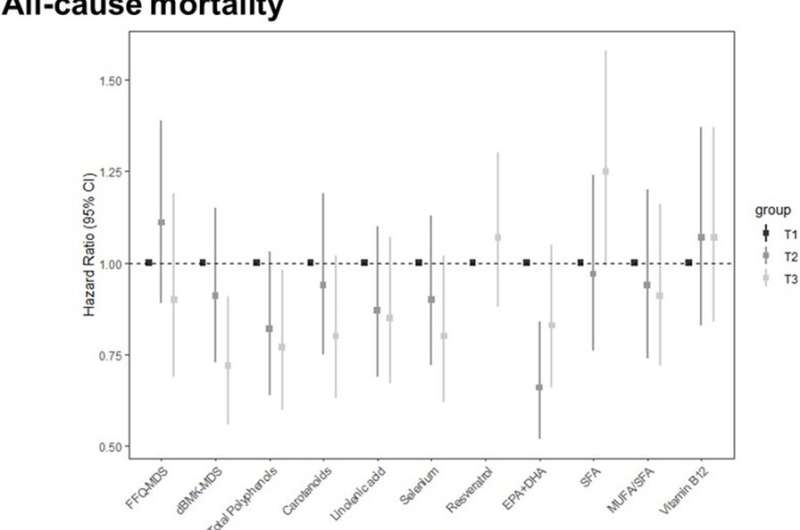Mediterranean diet associated with a lower risk of mortality in older adults

A greater adherence to the Mediterranean diet which had been assessed through an index made with biomarkers during a 20-year scientific monitoring is associated with a lower mortality in adults over 65. This is one of the main conclusions of a study led by Cristina Andrés-Lacueva, head of the Research Group on Biomarkers and Nutritional & Food Metabolomics of the Faculty of Pharmacy and Food Sciences of the University of Barcelona (UB) and the CIBER on Fragility and Healthy Ageing (CIBERFES), also formed by the Food Innovation Network of Catalonia (XIA).
The paper, published in the journal BCM Medicine, has been carried out in collaboration with the National Institute on Ageing (NIA) of the United States. According to the conclusions, the analysis of dietary biomarkers in plasma and urine can contribute to the individualized food assessment for old people. The study is based on the InCHIANTI project, conducted in the region of the Italian Tuscany, a study that has been carried out during 20 years in a total of 642 participants (56 percent women) aged over 65 or more and which enabled researchers to obtain complete data on food biomarkers.
As stated by the UB Professor Cristina Andrés-Lacueva, head of the research group in CIBERFES, "we develop an index of dietary biomarkers based on food groups that are part of the Mediterranean diet, and we assess their association with mortality."
In the study, researchers chose the reference levels of the following dietary biomarkers in the urine: total polyphenols and resveratrol metabolites (from grape intake) and presents in plasma, plasma carotenoids, selenium, vitamin B12, fatty acids and their proportion of monounsaturated and saturated fatty acids. Using a predictive model, they assessed the associations of the Mediterranean diet index and the food-frequency questionnaire (FFQ) with mortality.
During the 20 years of monitoring, there were 425 deaths (139 due to cardiovascular diseases and 89 due to cancer-related causes). Once the models were analyzed, the score of the Mediterranean diet using the biomarkers was inversely associated with all causes of death.
This study highlights the use of dietary biomarkers to improve the nutritional assessment and guide a customized assessment for older people. As noted by the CIBERFES researcher of the UB Tomás Meroño, co-first signatory of the study, the researchers "confirm that an adherence to the Mediterranean diet assessed by a panel of dietary biomarkers is inversely associated with the long-term mortality in older adults, which supports the use of these biomarkers in monitoring evaluations to study the health benefits associated with the Mediterranean diet."
More information: Nicole Hidalgo-Liberona et al, Adherence to the Mediterranean diet assessed by a novel dietary biomarker score and mortality in older adults: the InCHIANTI cohort study, BMC Medicine (2021). DOI: 10.1186/s12916-021-02154-7



















